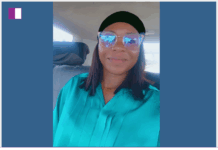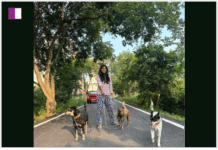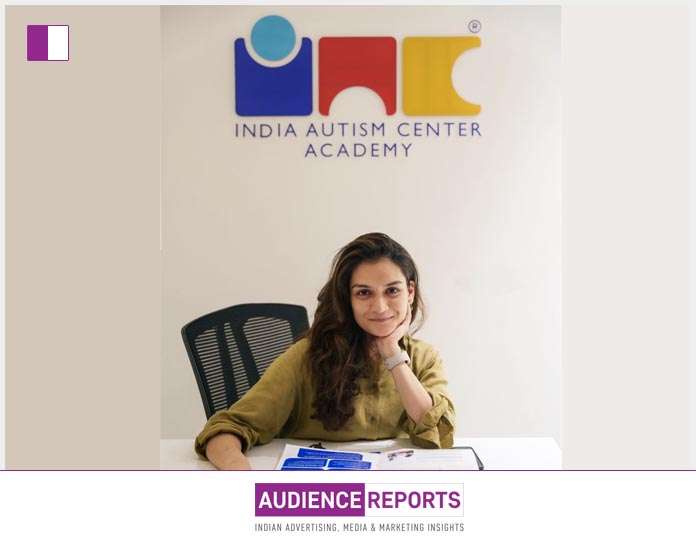Sakhi Singhi, the Head of Communications and Partnerships at India Autism Center, is a passionate advocate for the rights and representation of people with disabilities (PwDs) in India. Her work is driven by a deep commitment to creating a more inclusive society where every individual, regardless of their abilities, has a voice and the opportunity to participate fully in all aspects of life, including politics.
Sakhi Singhi recently highlighted a critical issue on her LinkedIn post, shedding light on the stark underrepresentation of Indians with disabilities in the country’s political landscape. According to the data she shared, the political system in India does not adequately represent over 60 million Indians with disabilities. This glaring gap is a significant concern, as it means the needs and voices of a substantial portion of the population are not being addressed or heard in political forums.
In her post, Sakhi Singhi points out that not a single political party in India has made the needs and upliftment of the disabled community a focal point of their campaigns, speeches, or agendas. This neglect is further highlighted by the absence of election candidates with disabilities, a stark contrast to international politics where inclusivity is more visibly practiced. Sakhi Singhi notes that countries like Spain, Canada, the UK, New Zealand, the US, and Australia have elected officials with disabilities, setting a precedent for inclusive representation.
For instance, Spain elected its first minister with Down syndrome in 2024, Canada and the UK have visually impaired Members of Parliament, New Zealand elected its first deaf Member of Parliament in 2011, and the US and Australia have wheelchair-user senators. These examples demonstrate that with the right support and initiatives, people with disabilities can and do make significant contributions to governance and policy-making.
Sakhi Singhi emphasizes the need for India to follow these examples and take concrete steps to ensure that people with disabilities are not only able to vote but also able to run for office and participate actively in political life. She highlights a survey among the PwD community in India that revealed disheartening statistics: 71% have never attended an event on political participation, 93% are not part of a political organization, and only 25% see themselves being elected to politics. These numbers reflect the deep-rooted barriers and lack of support that hinder political engagement among people with disabilities.
However, Sakhi Singhi also sees a glimmer of hope. She mentions that 8.84 million Indians with disabilities have registered as voters this year, a significant achievement that shows the potential for increased political participation. She argues that by making election booths wheelchair-friendly and allowing people with disabilities to vote from home, India can take crucial steps toward inclusivity.
Sakhi Singhi believes that with more initiatives by the government, India can foster a political environment where leaders with disabilities represent and work for the entire community. Such representation is not only about having a seat at the table but also about ensuring that policies and decisions reflect the diverse needs of all citizens.
As the Head of Communications and Partnerships at India Autism Center, Sakhi Singhi is at the forefront of driving change and advocating for the rights of people with disabilities. Her role involves building strategic partnerships, raising awareness, and mobilizing resources to support initiatives that promote inclusivity and equal opportunities for people with autism and other disabilities.
Sakhi Singhi’s dedication to this cause is evident in her efforts to bring attention to the systemic barriers that people with disabilities face in India. She uses her platform to amplify their voices and push for policy changes that will enable greater participation and representation in all spheres of life, including politics.
Her work at India Autism Center is a testament to her commitment to making a tangible difference in the lives of people with disabilities. By fostering collaborations with various stakeholders, including government agencies, NGOs, and the private sector, Sakhi Singhi aims to create a more inclusive society where everyone has the opportunity to thrive.
Sakhi Singhi’s advocacy extends beyond just raising awareness; she is actively involved in developing and implementing programs that support the education, employment, and social integration of people with disabilities. Through her work, she strives to break down the barriers that prevent individuals with disabilities from achieving their full potential.
Sakhi Singhi is a tireless advocate for the rights and representation of people with disabilities in India. Her work at India Autism Center and her efforts to highlight the underrepresentation of PwDs in politics are critical steps toward creating a more inclusive and equitable society. By championing the cause of people with disabilities and pushing for systemic changes, Sakhi Singhi is making a significant impact and inspiring others to join the movement for inclusivity and equal representation.


































